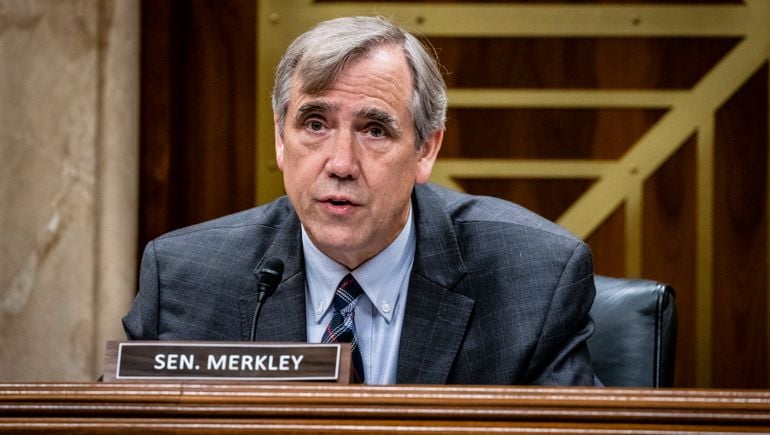[ad_1]
Dive Brief:
- A coalition of 18 federal legislators is urging the U.S. Department of Education to broaden its collection of college admissions data and publicly disaggregate the information by gender, race and ethnicity.
- In a Tuesday letter to James Kvaal, the Education Department’s top higher ed official, the Democratic members of Congress said the agency should help address the sector’s “persistent racial inequities” by mandating new transparency from colleges. Submitting new data would be a light lift for colleges, as many already collect it for internal use, the letter said.
- The lawmakers also called for a demographic breakdown of students admitted through legacy considerations, when preference is given to alumni’s family members.
Dive Insight:
Each year, the Education Department collects data from colleges that receive federal funding and publicly posts it to the Integrated Postsecondary Education Data System, also known as IPEDS.
The Education Department currently asks for racial and ethnic data on colleges’ enrolled students, but the lawmakers argue this should be expanded to applicants and students who are admitted but opt not to attend.
The letter also called for a demographic breakdown of students admitted through early decision, early action and legacy policies, when applicable. Under early action, students apply and find out their admissions status sooner than the general pool of applicants. Early decision admissions provides the same benefit, but it binds students to a specific college and is often favored by wealthy students who don’t need to weigh competing financial aid packages.
Legislators highlighted the U.S. Supreme Court’s upcoming decision on race-conscious college admissions as a de facto deadline for the Education Department. The court’s ruling will likely come close to summertime and is expected to restrict race-conscious policies.
“After the elimination of such practices in both California and Texas, admissions rates for Black and Hispanic students dropped precipitously, leading to long-term, negative effects on the income and social mobility of Black and Hispanic communities,” the letter said.
The lawmakers applauded a new IPEDS question on whether colleges consider legacy status but said the system still leaves significant blind spots that make it hard to keep colleges accountable.
“The data point will remain incomplete if IPEDS does not collect information on how many students actually benefit from these preferences,” they said.
The Education Department did not immediately respond to a request for comment Wednesday.
The congressional letter closely mirrors one sent by college leaders, academics and higher education access advocates to Kvaal and Education Secretary Miguel Cardona in February. Among the over 30 signatories were the Institute for Higher Education Policy, college access organization The Institute for College Access & Success, and think tank Education Reform Now, which organized the letter.
James Murphy, deputy director of higher education policy at Ed Reform Now, applauded the letter from lawmakers Wednesday.
“The Department of Education should have started collecting and publishing disaggregated data on who applies to colleges and who gets in, who receives the benefits of legacy status, and who receives the advantages of early application cycles years ago,” he said.
[ad_2]
Source link









